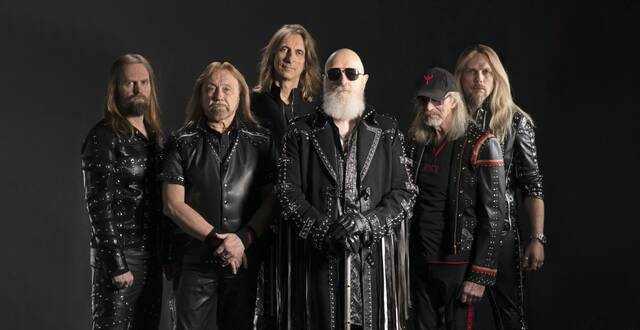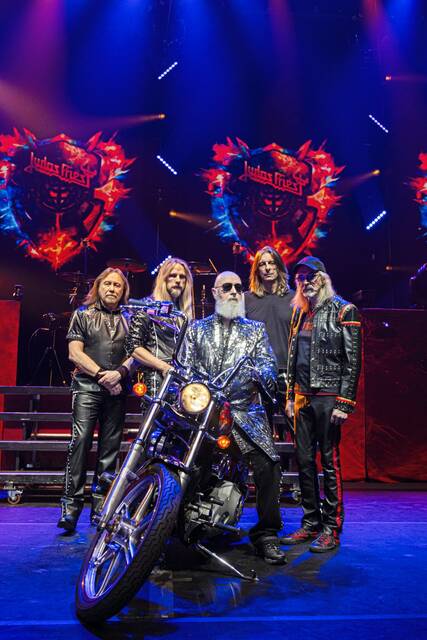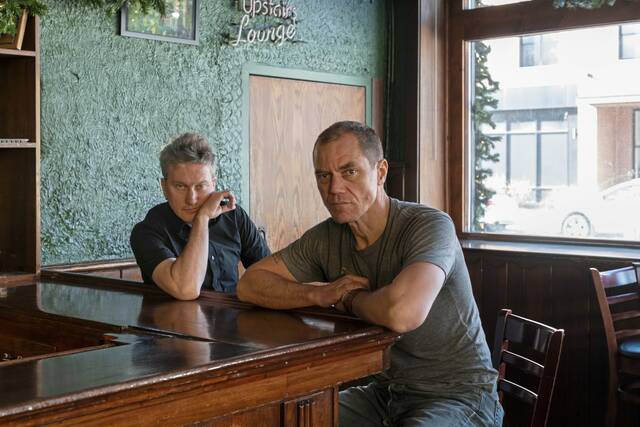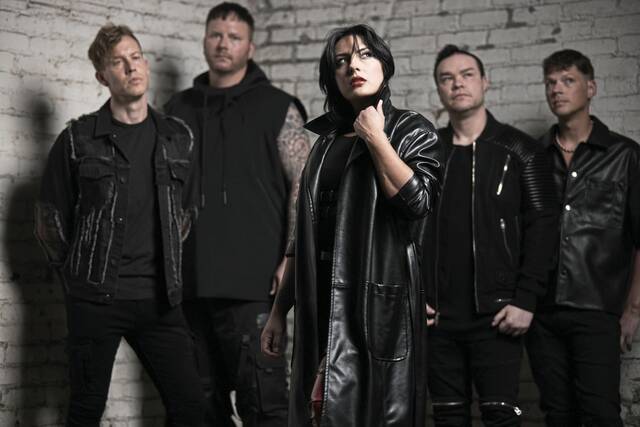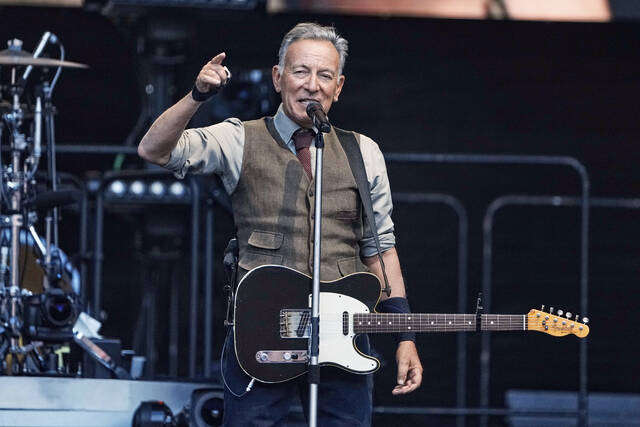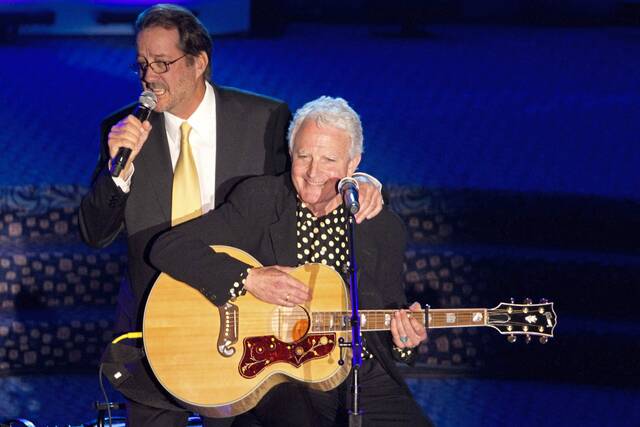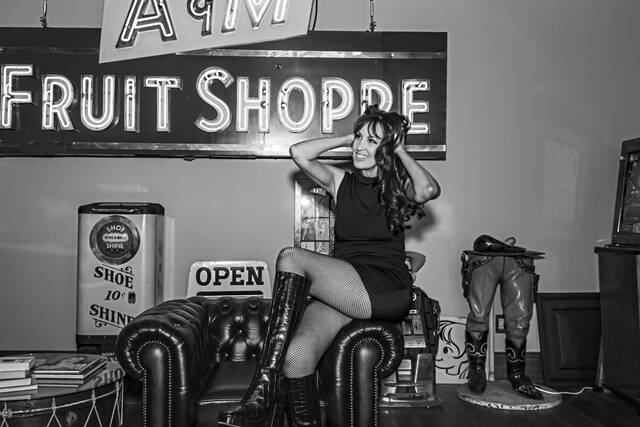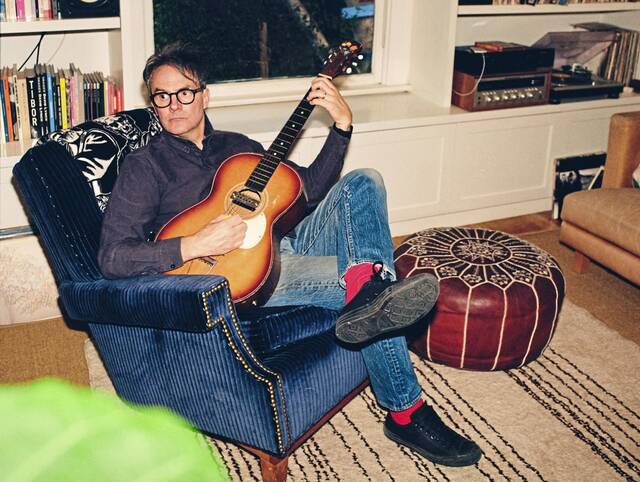As Judas Priest continues its tour in support of last year’s “Invincible Shield” record and marks the 35th anniversary of 1990’s “Painkiller” album, guitarist Richie Faulkner is hoping that the new material will eventually stand beside “classic” Judas Priest material.
“Well, obviously, it hasn’t had the luxury of time yet. But we try and do our best. I’ve been with the band for three records now, we always try to do our best moving forward — the best performance, the best songs, the best guitar solos, the best vocals that we can — and then hopefully they stand the test of time,” Faulkner said this week. “Those (older) records, obviously, they’re classics. They defined metal. ‘Screaming for Vengeance,’ ‘Sin After Sin,’ ‘Stained Class,’ ‘Killing Machine,’ the iconic, historic heavy metal albums. So hopefully you get new fans as well. Sometimes their first record they listen to is ‘Firepower’ or ‘Invincible Shield’ or whatever it may be. So again, it’s just an honor to be included in that lineup of great music.”
The veteran British metal band has been going strong for more than a half century, and they’ll be playing their first Pittsburgh show since 2014 when their co-headlining tour with Alice Cooper visits the Pavilion at Star Lake on Oct. 1. Sludgy metal veterans Corrosion of Conformity will open the show.
For Faulkner, seeing vocalist Rob Halford still singing at a high level is “incredible.”
“He turned 74 in August, and I don’t know how you do that. I don’t know how the body does that, to get out there every night and sing like he does. I guess some people are born with that kind of toolbox in their throat, you know what I mean?” Faulkner said. “It’s been like that forever. He’s a phenomenon, really, and we’re lucky to still have him and his voice is still in that sort of condition. We’re lucky to be out there giving 1000% behind him. So he’s an inspiration, really.”
In a Zoom call Wednesday from Norfolk, Virginia, Faulkner spoke with TribLive about writing for the “Invincible Shield” album, his approach to guitar solos, songs he’s like to add to the setlist, the appeal of the Flying V guitar and more. Find a transcript of the conversation, edited for clarity and length, below.
It’s been 11 years since Judas Priest played in Pittsburgh, so what’s it like when you hit a city that you haven’t been to for a while?
We haven’t been there for a while so people haven’t seen us for over 10 years now in that part of the world. So there’s always a refreshed energy when we hit a city like that. We’re looking forward to coming down. I can’t believe it’s been that long. Time’s been flying in the last few years, but we’re really excited to come down, and we’re really looking forward to it.
How’s it been touring with Alice Cooper so far?
Oh, fantastic. Both off stage and on stage. I mean, first of all, the music spans longer than Priest’s. Fantastic songs, great band, great guitar players, and then off stage as well, we all know each other. We’ve passed, met each other a few years running. We always kind of criss-cross each other throughout different tours, and we get on really well. So it’s a pleasure to be around them. And as I said, a pleasure to hear their music every night. So we’re really enjoying it.
It looks like you’re currently playing “Gates of Hell” and “Giants in the Sky” (from “Invincible Shield”) on this tour, so what stands out about those songs?
We’re still sort of running on the “Invincible Shield” record, plus “Painkiller.” And obviously, when you play new songs, it’s less of a reaction, not everybody knows the songs yet. You play “You’ve Got Another Thing Coming,” it’s been around for a few decades and then you play “Giants in the Sky,” I think people are listening more than rocking out, they’re unfamiliar with it. But you can’t make future classics without playing them. “Another Thing Coming” was played for the first time once. So you’ve got to put new music out there and get the new music going and not become sort of a greatest hits band. You’ve got to put new music in, and we enjoy doing that. We enjoy creating new music and putting it out there and hopefully playing it for more tours to come.
“Giants in the Sky” could be looked at as a tribute to musicians we’ve lost like Ronnie James Dio and Lemmy Kilmister. Does it take on a little bit more added meaning with the death of Ozzy Osbourne earlier this year?
Of course, yeah, unfortunately. When we play “Giants in the Sky,” on the backdrop we have some of the greats that we’ve lost over the last couple of decades. Unfortunately, we had to add Ozzy to it. He’s an icon, always will be. His music will always live on. He was a friend of all of us in the band. The boys in the band knew him well. They grew up in the same area. So we put him up on the screens to pay tribute to Oz as well. But again, his music lives on so he’ll never be forgotten.
Did you feel any pressure when it came to writing this album because the band has such a storied legacy?
I think that’s part of it. I think you always feel pressure, but it’s a healthy pressure. I think it’s, you challenge yourself, because the legacy is so strong, you’ve got to try and make the next one even stronger, or there’s no point doing it really. So we always try to make it better. And I think it achieved the highest chart position in the UK the band have achieved, which is an achievement in itself. And then, as I said, on the tour, we have young people coming, and they seem to stay young. Every time we come through a couple of years later, they’re still the same kind of age group down there. So it’s an indication that you’re doing something right with the new music, and that’s an incredible feeling. They’re singing along to the old songs, they’re singing along to the new ones, and that’s an incredible thing to be a part of. We’ll see what happens if there’s a next one.
How did the writing process for this one go? Did you feel more confident bringing ideas to the band?
I always feel insecure. There’s always a moment of insecurity. You get your best ideas and you put them down and then me, Glenn and Rob will get together and show each other those ideas. Every time it happens, I put them on and I think, well, what have I done? Why did I put this? This is a rubbish idea because of your insecurities. You think they’re the best ideas. And as soon as you put them on, you get so insecure. But all of us are the same. Rob says he’s the same. Glenn says the same thing. But then you get those ideas and you put them together and you work together as you do and you come out with an album, hopefully. So it always starts with that insecurity, but it builds and hopefully becomes a monster of an album that they’ve done for over 50 years.
Do you feel more comfortable now than a couple of years ago at least or when you first joined the band?
Yeah, I think you can imagine the first time you go in, compared with the third time you go in the writing session, you’re more familiar on a personal level. You’re more trusted. You know each other more so you can, not take more risks, but you can trust each other’s judgment and you’re not as afraid or insecure to put those ideas down. You trust the process a lot more. So, yeah, I think it does become a little bit easier, but there’s still that pressure, you’ve got that long legacy, as you said, you’ve got to come up with something that not only fits in with it, but adds to it. But it’s a healthy pressure, and I don’t think that’s a bad thing at all.
Related
• Review: Morrissey's 1st Pittsburgh show in 12 years taps into Smiths catalog, solo career• Interview: Biohazard's Billy Graziadei on reunion of classic lineup ahead of tour opener in New Kensington
• 2025 Pittsburgh area concert calendar
With the album, when it comes to the guitar solos, what are you hoping to accomplish with them?
It’s always been a hard thing for me to have my own voice. I played in cover bands when I was younger, and so you make a living emulating everyone else. So you emulate everyone else, but you haven’t got your own voice. So it’s always been a challenge for me to have my own voice. So I always try and add a little bit more of whatever my voice is on the guitar solos. Something that if someone put the record on, they can identify it as mine. I don’t know if I ever achieved that. That’s not really for me to say. That’s for the listener to decide really, but I always try and do that, something that has my character in there somewhere, if that’s possible to do, if that makes sense.
So you’re still maybe trying to figure out your own voice…
Yeah, I think I always will be. I think your voice and character changes as you grow older, your tastes change, and you change as a human being. So I think that’s going to change as the journey continues. But always it’s, what am I going to say? And especially with this legendary band, after over 50 years, Glenn Tipton, K.K. Downing, they had such strong voices. What’s going to be my voice as part of this legacy? It’s an important thing. So I always try and achieve something that stands on its own, hopefully, alongside those two greats.
Are there any solos on this album that you’re particularly proud of? For me, when I listened to it, I thought “Panic Attack” was pretty killer.
I appreciate it. There’s a couple I like. Obviously they were the final take so I was happy with them. I must have been happy with them otherwise we wouldn’t have put them out. So there was something in there. I think “Panic Attack,” it contained everything I wanted it to. There was a bit of sweep picking in there, like Glenn’s stuff and you take from different places. It had everything in there I wanted it to contain. “Devil in Disguise” was a different type of solo. It was more of a Ritchie Blackmore type thing. But again, I’m referencing Ritchie Blackmore, so is it my type thing? I don’t know. The title track was one I was really pleased with as well, “Invincible Shield.” It’s just a bit of a bugger to play live so I should have maybe come up with something a bit simpler. There are a few that I was happy with.
You mentioned the band is also celebrating the anniversary of “Painkiller.” What is it about that album that still stands out all these years later?
The tours up until this point, whenever we play a song from the “Painkiller” record or when Rob mentions the “Painkiller” record, the roof just lifts off the room. So to be back playing a celebration of that record is always uplifting from our point of view and the crowd as well. And the guitar playing on that record is stunning, as we all know: “Painkiller,” “One Shot at Glory,” “Hell Patrol.” All those tracks are relentless guitar playing, like a master, you put that on, learn that and you’ve probably got everything down in your toolbox for a heavy metal guitar. It’s great to play live because you can’t mess it up, you’ve got one shot at it, you’ve got to get it right or close to right the first time. So it’s a bit of a challenge as a guitar player, but it’s really fun to play and the audience loves it, too.
With such a long history to pull from, there are songs that aren’t going to be played every night just because you only have a certain amount of time. What are the hidden gems that you wish you could sneak in there every now and then from the band’s past?
“Reckless,” I think, from the “Turbo” record is one I’ve always wanted to do. I think we rehearsed it on the Redeemer of Souls tour, but for some reason we never brought it out onto the live set. I’d like to do that one. “Eat Me Alive” is a good one. “Ram it Down” is a good one. There’s tons of them. Just those three, just off the top of my head, I’d love to attempt those, maybe on the next tour.
It looks like you’re sort of partial to the Flying V guitar. What is it about that guitar, that shape, that just fits with or lends itself to heavy metal?
That’s a great question, because it really does (laughs) lend itself to heavy metal. It’s kind of pointy, but it’s a beautiful thing. Obviously, K.K. Downing used one. I am a big Michael Schenker fan. Randy Rhoads, who’s known for a version of the V with Jackson. James Hetfield used the V back in the day. There was just something about it that was a departure from the norm back in the day when it came out, when guitars were kind of more an acoustic shape, the curves and stuff. When that came out, and the Explorer, it was a revolution, really. You’ve got good access to the high frets on a V. You can put it between your legs and play to get up to those higher (frets), it’s just comfortable. But I also play the Les Paul a lot and the Explorer on stage. So I vary, obviously, around. But when I joined Priest, obviously, after K.K., I mean, Priest is known for a flying V. So how could you not play a flying V on stage? I’ve played the V for my entire career so far with Priest. I love it.


